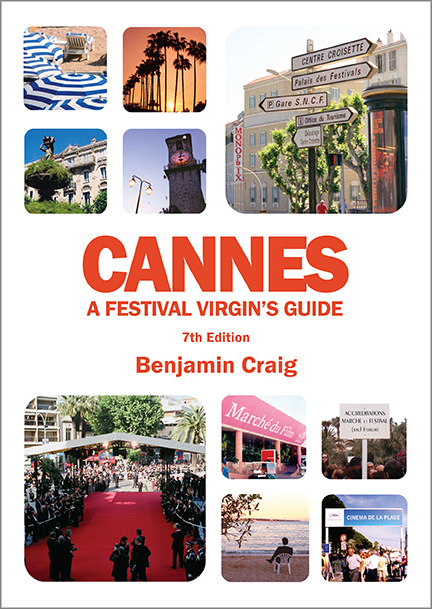
History of the Cannes Film Festival
Part 5: Hollywood Mavericks Invade The Croisette
< Back to Part 4: Critics Welcome New Filmmakers, Old Directors Strike
As for the films themselves, the 1970s line-up was largely dominated by the new 'golden boys' of American film, who found themselves in the fortunate position to take advantage of the transition in Hollywood and produce some of cinema's most impressive work. Directors such as Martin Scorsese, Francis Ford Coppola, and Robert Altman had been given unusually free rein, allowing them to jump to the forefront of contemporary filmmaking. In effect, these directors and their peers were America's answer to the French New Wave of the previous decade, and Cannes certainly approved. The 1970s saw a range of new masterworks screened, including Robert Altman's "M.A.S.H" and "3 Women", Francis Ford Coppola's "The Conversation" and an unfinished "Apocalypse Now" (which still managed to clinch the Palme d'Or), Martin Scorsese's "Alice Doesn't Live Here Anymore" and "Taxi Driver", and Steven Spielberg's "The Sugarland Express".
But the 70s in Cannes weren't only about American movies. Filmmakers from Europe and further afield were also well represented. Films included, John Boorman's "Leo the Last", Louis Malle's "Murmur of the Heart", Milos Forman's "Taking Off", Andreï Tarkovski's "Solaris", Ken Russell's "Mahler", Rainer Werner Fassbinder's "Fear Eats the Soul" and "Despair", Wim Wenders' "Kings of the Road" and "The American Friend", Roman Polanski's "The Tenant", Ridley Scott's "The Duellists", Alan Parker's "Midnight Express", and Werner Herzog's "Woyzeck".
By the middle of the decade, the official competition was bulging at the seams so festival boss, Maurice Bessey, decided to introduce three new hors compétition (out of competition) side-bars: Les Yeux Fertiles ("Rich Vision"), l'Air du Temps ("Spirit of the Time"), and Le Passé Compose ("From the Past"). It seemed like a good idea at the time, but festival organisers quickly discovered that it simply over-complicated the official selection. In 1978 the festival's new delegate générale, Gilles Jacob, rationalised the three side-bars into a single selection: Un Certain Regard (loosely translated meaning, "at a glance"). That same year, Jacob also introduced a new award - the Caméra d'Or (golden camera) – given to the best feature film by a first-time director in any section or side-bar of the festival.
New Decade, New Digs
The arrival of the 80s saw the festival facing a new challenge – it's old home in the Palais Croisette was just no longer suitable for such a large event. Unwilling to lose its prestigious and lucrative prize, the City of Cannes commissioned a new conference centre, to be built on the site of the derelict old winter casino. Completed in 1982, the dual-purpose Palais des Festivals et Congrès hosted its first event in 1983. To celebrate, city officials invited many stars of the day to leave their hand prints in clay outside the building. These can still be seen on Esplanade Georges Pompidou.
On the movie front, the 1980s were heralded by the comeback film from legendary Japanese filmmaker, Akira Kurosawa. The director had been languishing in bankruptcy, but with financial help from George Lucas and Francis Ford Coppola, Kurosawa was able to make "Kagemusha", which not only signalled a return to form, but bagged the Palme d'Or for 1980 (sharing the honour with Bob Fosse's, "All That Jazz"). Other key films screened at Cannes during the 80s included Bruce Beresford's "Breaker Morant", Bernardo Bertolucci's "Tragedy of a Ridiculous Man", Michael Mann's "Violent Streets", Costa-Gavras' "Missing", Jean-Luc Godard's "Passion", Terry Jones' "Monty Python – The Meaning of Life", Peter Weir's "The Year of Living Dangerously", Win Wenders' "Paris, Texas" and "Wings of Desire", Alan Parker's "Birdy", Peter Bogdanovich's "Mask", Roland Joffe's "The Mission", Peter Greenaway's "Drowning By Numbers", Krzysztof Kieslowski's "A Short Film About Killing", Jane Campion's "Sweetie", and Steven Soderbergh's "Sex, Lies, and Videotape" (a surprise Palme d'Or winner in 1989).
 A full rundown on the 2026 Cannes Film Festival, is available in the book, Cannes - A Festival Virgin's Guide (7th Edition).
A full rundown on the 2026 Cannes Film Festival, is available in the book, Cannes - A Festival Virgin's Guide (7th Edition). Find Out More >
Continue reading... Part 6: Continuer Tout Droit >